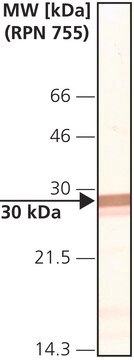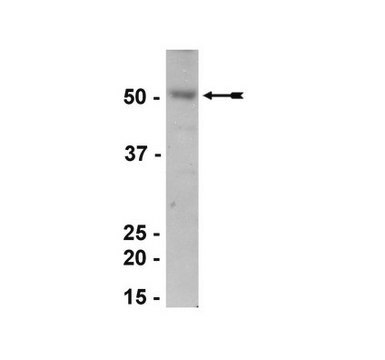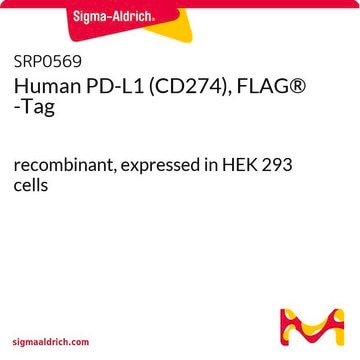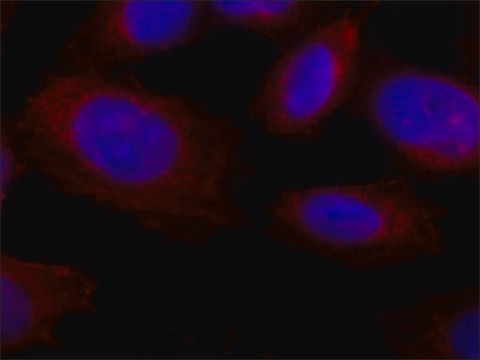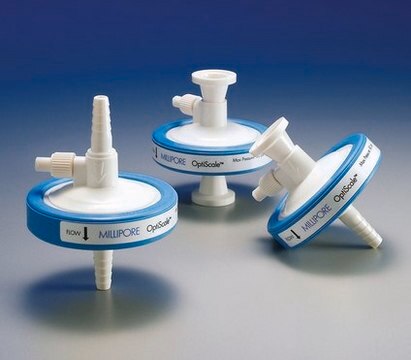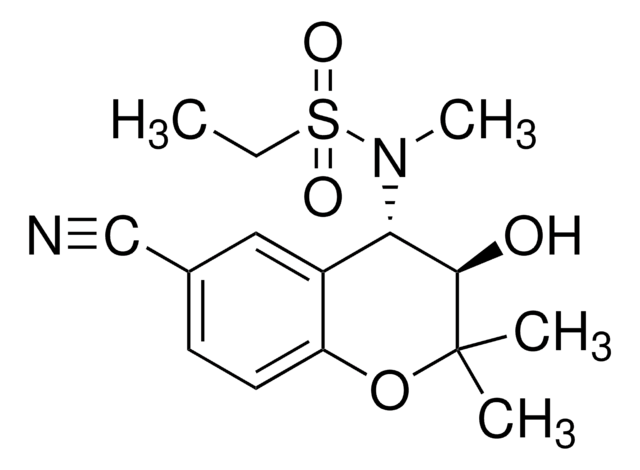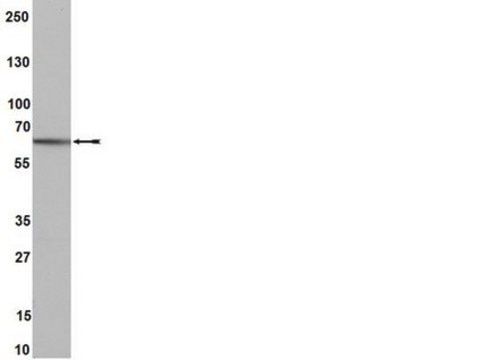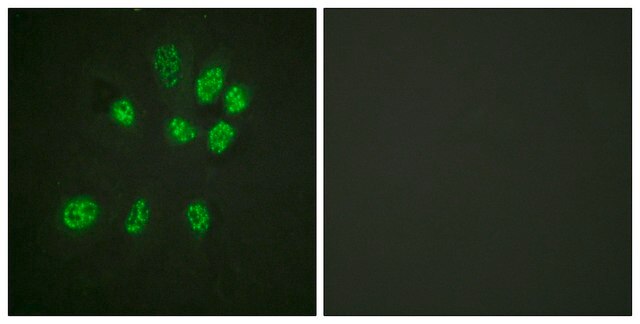MAB3069
Anti-Connexin 32 Antibody, clone M12.13
clone M12.13, Chemicon®, from mouse
Synonym(s):
Cx32
Sign Into View Organizational & Contract Pricing
All Photos(1)
About This Item
UNSPSC Code:
12352203
eCl@ss:
32160702
NACRES:
NA.41
Recommended Products
biological source
mouse
Quality Level
antibody form
purified immunoglobulin
antibody product type
primary antibodies
clone
M12.13, monoclonal
species reactivity
human, mouse, rat
manufacturer/tradename
Chemicon®
technique(s)
immunohistochemistry: suitable
western blot: suitable
isotype
IgG
NCBI accession no.
UniProt accession no.
shipped in
wet ice
target post-translational modification
unmodified
Gene Information
human ... GJB1(2705)
Related Categories
Specificity
Monoclonal antibody MAB3069 was produced by the immunization of BALB/c mice with isolated rat junctional complexes, prepared by the method of Stevenson and Goodenough (1988). Epitope mapping, hydropathy plotting, and topological studies suggest that this antibody is very likely directed against an epitope located between residues 95-125 in the central cytoplasmic loop of rat Cx32.
Application
Anti-Connexin 32 Antibody, clone M12.13 detects level of Connexin 32 & has been published & validated for use in WB, IH.
Immunohistochemistry: acetone or unfixed tissues recommended. Epitope is internal, paraffin sections are untested.
Works with lightly formaldehyde-fixed tissue.
Western blot: Detects a 27 kDa Connexin 32 polypeptide in blots of rat hepatocyte gap junctions and an additional 47 kDa band corresponding to aggregates.
Optimal working dilutions must be determined by end user.
Works with lightly formaldehyde-fixed tissue.
Western blot: Detects a 27 kDa Connexin 32 polypeptide in blots of rat hepatocyte gap junctions and an additional 47 kDa band corresponding to aggregates.
Optimal working dilutions must be determined by end user.
Research Category
Cell Structure
Cell Structure
Research Sub Category
Adhesion (CAMs)
Adhesion (CAMs)
Physical form
Format: Purified
Liquid in 0.02M PB, 0.25M NaCl, containing 0.1% sodium azide.
Storage and Stability
Maintain at 2-8°C in convenient undiluted aliquots for up to 6 months.
Other Notes
Concentration: Please refer to the Certificate of Analysis for the lot-specific concentration.
Legal Information
CHEMICON is a registered trademark of Merck KGaA, Darmstadt, Germany
Disclaimer
Unless otherwise stated in our catalog or other company documentation accompanying the product(s), our products are intended for research use only and are not to be used for any other purpose, which includes but is not limited to, unauthorized commercial uses, in vitro diagnostic uses, ex vivo or in vivo therapeutic uses or any type of consumption or application to humans or animals.
Not finding the right product?
Try our Product Selector Tool.
wgk_germany
WGK 2
flash_point_f
Not applicable
flash_point_c
Not applicable
Certificates of Analysis (COA)
Search for Certificates of Analysis (COA) by entering the products Lot/Batch Number. Lot and Batch Numbers can be found on a product’s label following the words ‘Lot’ or ‘Batch’.
Already Own This Product?
Find documentation for the products that you have recently purchased in the Document Library.
Endometrial connexin expression in the mare and pig: evidence for the suppression of cell-cell communication in uterine luminal epithelium.
W E Day, J A Bowen, R Barhoumi, F W Bazer, R C Burghardt
The Anatomical Record null
W Matsuyama et al.
Journal of human genetics, 46(6), 307-313 (2001-06-08)
To clarify the pathomechanism in three patients with X-linked Charcot-Marie-Tooth disease (CMTX) and unique clinical features, we studied three connexin (Cx) 32 (GJB1) mutants with respect to cellular localization in cultured cells. Wild-type Cx32 and three Cx32 mutants (Va163Ile and
J E Rash et al.
Neuroscience, 149(2), 350-371 (2007-10-02)
Suprachiasmatic nucleus (SCN) neurons generate circadian rhythms, and these neurons normally exhibit loosely-synchronized action potentials. Although electrotonic coupling has long been proposed to mediate this neuronal synchrony, ultrastructural studies have failed to detect gap junctions between SCN neurons. Nevertheless, it
Topological distribution of two connexin32 antigenic sites in intact and split rodent hepatocyte gap junctions.
Goodenough, D A, et al.
The Journal of cell biology, 107, 1817-1824 (1988)
J E Rash et al.
Journal of neurocytology, 33(1), 131-151 (2004-06-03)
Combined confocal microscopy and freeze-fracture replica immunogold labeling (FRIL) were used to examine the connexin identity at electrical synapses in goldfish brain and rat retina, and to test for "co-localization" vs. "close proximity" of connexins to other functionally interacting proteins
Our team of scientists has experience in all areas of research including Life Science, Material Science, Chemical Synthesis, Chromatography, Analytical and many others.
Contact Technical Service